ROAD HOUSE (1989)
A bouncer is hired to clean up the baddest honkytonk in a Missouri town.

A bouncer is hired to clean up the baddest honkytonk in a Missouri town.


10 years before David Fincher’s Fight Club (1999) introduced its rules for brawling, Rick Dalton (Patrick Swayze) was already lecturing on the topic. What’s Dalton’s first rule for being a bouncer? Never underestimate your opponent. The second rule? Take it outside. And the final, most important rule? Be nice, of course.
Anyone who wants to be a bouncer would want to listen to Dalton—he’s the best in the business, after all. It’s for this reason that he’s headhunted by Frank Tilghman (Kevin Tighe), a bar owner in Missouri who wants help cleaning up the place. After Dalton accepts the offer and moves out to Jasper, he discovers there’s more to this Midwestern town than meets the eye…
Though criticised upon its release, Rowdy Herrington’s Road House has aged surprisingly well. Perhaps because 35 years have passed, our expectations of what a 1980s action flick can achieve have been suitably lowered. Consequently, Road House can be easily enjoyed as a fun, unpretentious movie that boasts a surprisingly strong foundation of good writing, further bolstered by excellent performances. Of course, the film isn’t perfect, and it does veer towards ludicrous mayhem in the third act, but it would be a challenge not to be entertained by this slice of cheesy action.
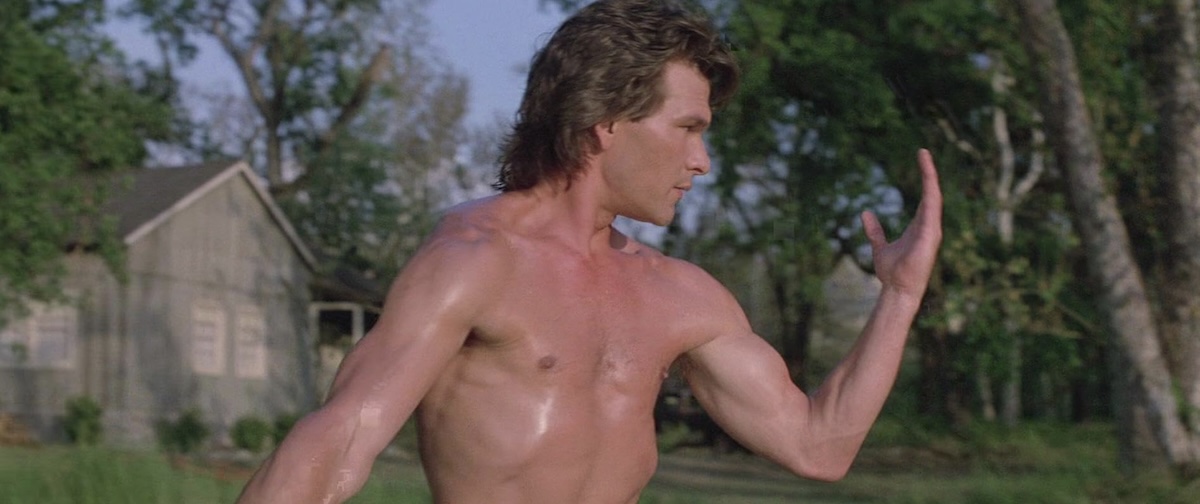
After re-watching this iconic film, it’s very difficult not to compare it to the Amazon-produced remake from 2024. Herrington’s is undeniably better, as is often the case with original products and their remake counterparts. The characters feel deeper and more genuine—particularly if we were to compare Swayze and Gyllenhaal’s performances—and the story simply feels more authentic overall. This is most likely the result of Herrington’s film being content with what it is, as opposed to Liman’s attempt to mimic a pre-existing creation.
Screenwriters Hilary Henkin and R. Lance Hill knew precisely what they were creating: a Western set in a bar, where our cowboy hero works as the doorman. Pistols are swapped for taekwondo kicks, but practically everything else remains the same. Henkin and Hill incorporate all the elements required for the story to have emotional depth—there’s a haunting back story, a token love interest, and an old comrade who arrives in our hero’s hour of need.
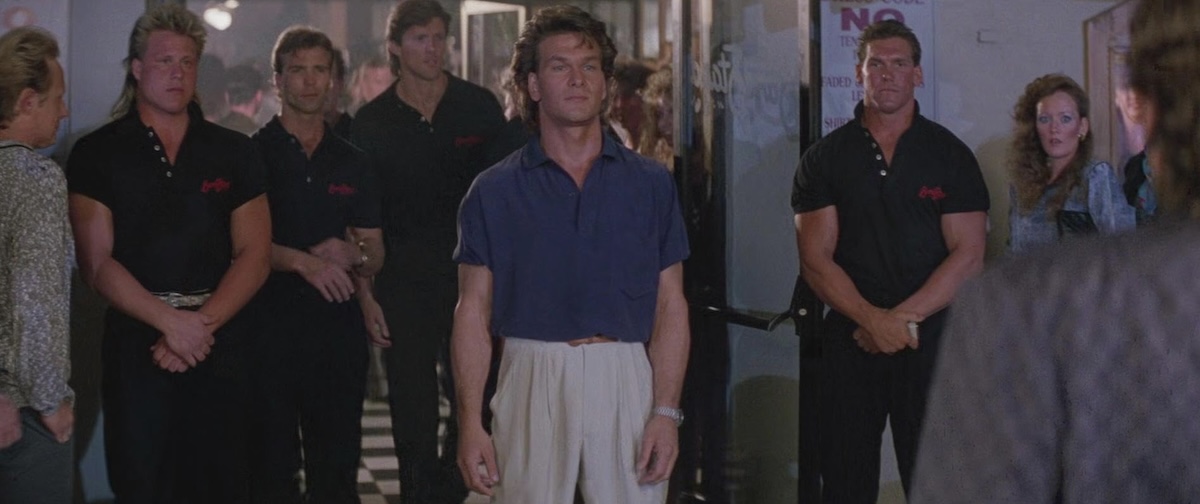
They also remember to include one of the most important aspects of an ’80s action movie: corny one-liners. Here, Wade Garrett (Sam Elliott) intones sonorously, “I’ll get all the sleep I need when I’m dead.” There’s also the monologue where Dalton lays down the law for his new colleagues, which reveals both his personality and philosophy in one riveting scene. The screenplay may not be award-winning material, but it does precisely what’s needed. Henkin and Hill deliver both the surface thrills and cheesy lines that action aficionados desire, while also including the more introspective elements that make a film memorable.
Perhaps the best example of this introspection—sorely lacking in Liman’s version—is Dalton’s trauma: he killed a man, ripping his throat out. Yes, I understand that you can’t read that (or write it) without a chuckle of mild bemusement, but Herrington’s film deals with it poignantly. Dalton explicitly discusses the event, whereas our protagonist in the remake remains silent on the matter. We watch Dalton as his best friend chastises him for not living in the present, but this is precisely what the film needs: a ghost from the past.
In this, we can see how Herrington’s film hits all the required narrative beats. His direction is perfect in its transparency; there’s no attempt at arty flourishes or overwrought camerawork. He seems to understand that this is a film driven by action and performances, and anything more would be superfluous. Along with the legendary cinematographer Dean Cundey, he captures the violence straightforwardly, avoiding all the irritating camerawork that plagued the remake.
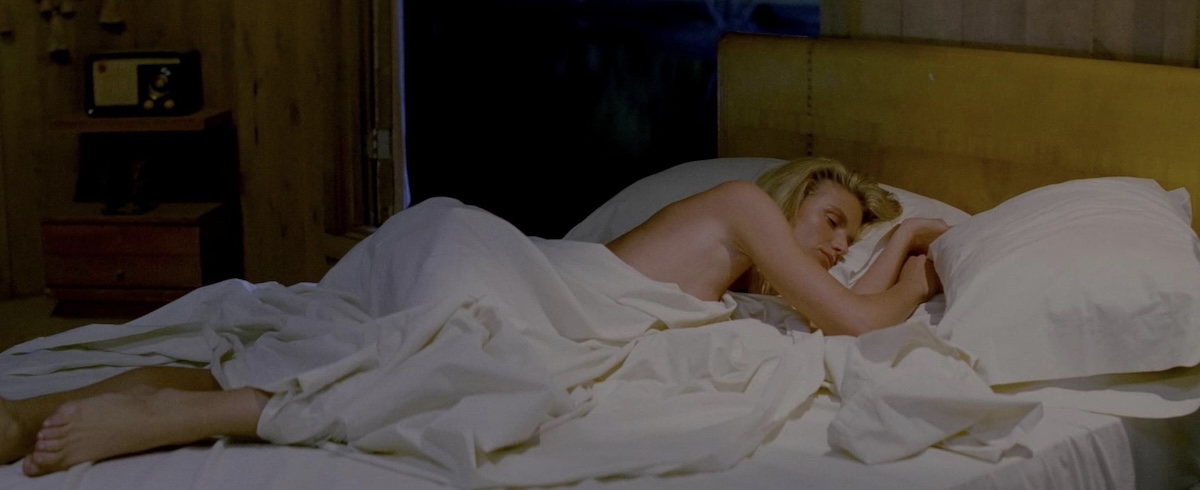
Speaking of performances, the film rests squarely on Swayze’s mullet-clad shoulders. He manages the tough feat of conveying personality with minimal expository dialogue. His performance here is thrown into even sharper relief when compared with Gyllenhaal’s rather bland interpretation of the character. While it could be argued that Gyllenhaal’s monosyllabic approach is a fresh take on the role— indeed, I thought that myself when I watched 2024’s Road House—his portrayal feels somewhat insipid next to Swayze’s magnetic performance as a brooding, smouldering bouncer with a troubled past.
Swayze sets the mould for the archetypally cool ’80s macho hero, while his supporting cast embodies their characters equally well. Sam Elliott’s appearance as the long-haired, big-brother figure adds a layer of intrigue to Dalton’s backstory, although it never descends into sentimentality—God forbid. Similarly, Kelly Lynch portrays Dr Elizabeth Clay as a stereotypical romantic interest (who looks as though she’s just stepped out of a hairspray commercial).
Few films can match Road House’s sheer level of ’80s vibe. This is perhaps why Herrington’s movie became such a cult classic; it’s pure escapism. This is evidenced by the fact that it was the most-watched film on cable during 2020, a year when the entire world craved a little escapism. Herrington’s film creates the impression that, no matter how bad things get or how much evil exists around you, there are plenty of wholesome characters to rely on. Not to mention a handsome hero with exquisite hair, who can always just save the day whenever he eventually decides it’s the right moment.
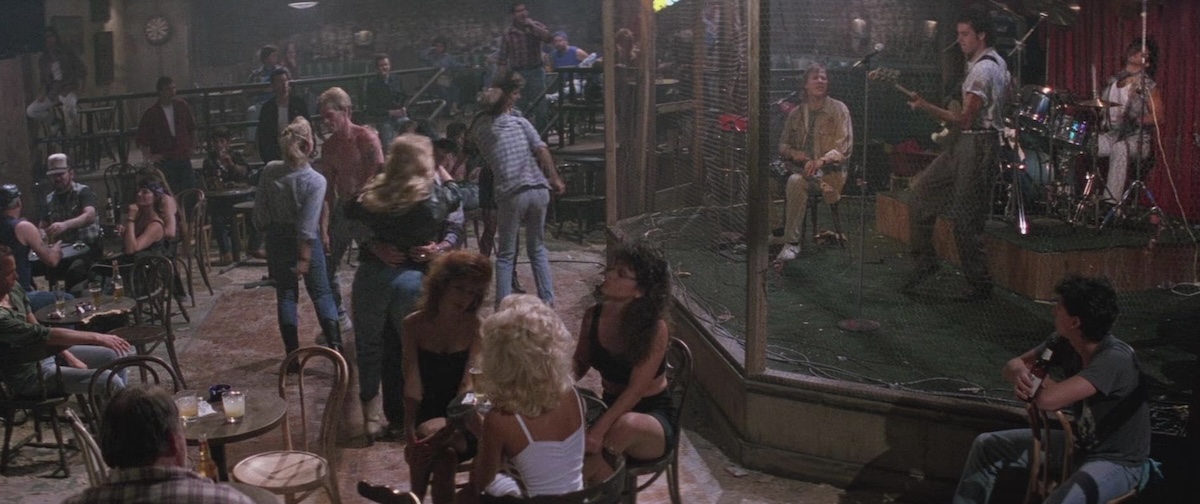
Such simplistic tales of right and wrong, set to a cracking soundtrack, still prove entirely enjoyable. Public opinion of the film seems to have improved since its release in 1989 when it performed relatively poorly at the box office. It was admonished by film critics, though I imagine most would now consider it to have been unfairly lambasted.
It certainly isn’t trying to be anything more than what it is: a cheesy action flick. While I wouldn’t argue this would be an acceptable excuse if other essential story elements were lacking, Road House has said narrative components that are engaging throughout—character, backstory, motive, and redemption. As a result, although the film is undeniably cheesy, it’s easy to love despite its numerous narrative shortcomings.
Judging a film designed primarily to entertain can be tricky. There’s nothing in Road House that hasn’t been seen before: it’s essentially a Western set in a bar instead of a saloon, combining wuxia action with tight jeans and copious amounts of hairspray. However, that particular combination somehow proves to be something unique, paradoxically demonstrating that a trite formula can be strikingly original when executed well. Or, if not quite original, then certainly entertaining—which is precisely how Road House can best be described.
USA | 1989 | 114 MINUTES | 2.35:1 | COLOUR | ENGLISH • PORTUGUESE

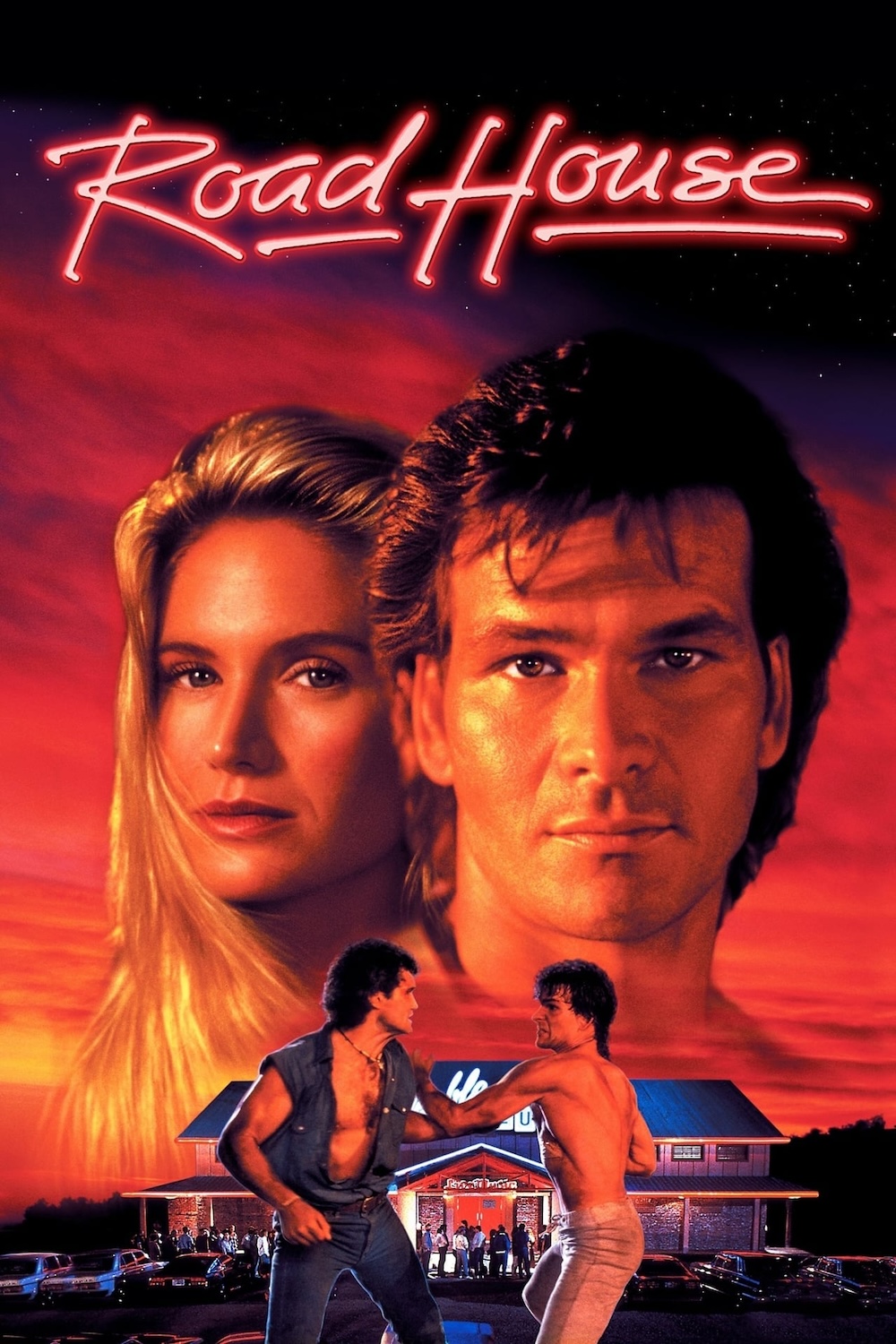
director: Rowdy Herrington.
writers: R. Lance Hill (credited as David Lee Henry) & Hilary Henkin (story by David Lee Henry).
starring: Patrick Swayze, Kelly Lynch, Sam Elliott, Ben Gazzara, Kevin Tighe, Red West, Jeff Healey, Sunshine Parker, Marshall Teague, John Doe, Kathleen Wilhoite, Terry Funk & Anthony De Longis.
